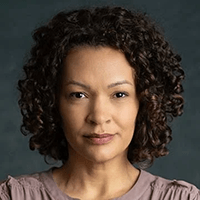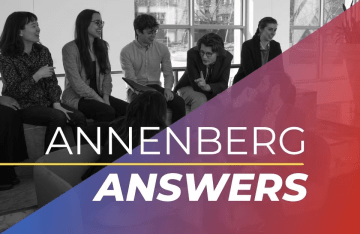Professors Sarah Jackson and Desmond Patton Awarded NSF Grant To Create Cross-Institutional Program Supporting STEM Researchers From Underrepresented Backgrounds
A partnership between Penn, Northwestern University, and New York University aims to provide more opportunities for historically underrepresented researchers conducting critical technology research.

The Annenberg School for Communication at the University of Pennsylvania is pleased to announce that the U.S. National Science Foundation (NSF) has awarded over $100K to a group of researchers at the University of Pennsylvania, Northwestern University, and New York University to develop a program that provides more opportunities and lowers systemic risks for historically underrepresented doctoral students, postdoctoral scholars, and early career faculty in science, technology, engineering, and math (STEM).

Ph.D.
At Penn, the research team is led by Sarah J. Jackson, Associate Professor at the Annenberg School for Communication, and Brian and Randi Schwartz University Professor Desmond Upton Patton.
Over the next two years, Jackson, Patton, and their collaborators — Charlton McIlwain at New York University and Rayvon Fouche and Aymar Jean Christian at Northwestern University — will develop the Critical STEM Faculty Alliance (C-STEM), a group of faculty from the three universities aiming to uncover barriers to the success of researchers from historically underrepresented backgrounds.

The grant is part of the NSF's Alliances for Graduate Education and the Professoriate (AGEP) program, which supports alliances among higher education institutions that design and implement strategies to increase the number of historically underrepresented STEM faculty and promote systemic change.
Through the C-STEM alliance, the researchers will determine how to address specific needs necessary to increase the representation, resilience, and success of minority doctoral students and faculty in STEM across the three institutions, focusing on those pursuing critical technology research.
“This is the first step in bolstering resources for underrepresented minority researchers whose work ensures that technology serves the public interest, especially those from communities most negatively affected by it,” Jackson says. “Following this assessment, we plan to design and scale a mentoring program that will advance new agendas in critical technology research and minimize harm from computing technology.”



